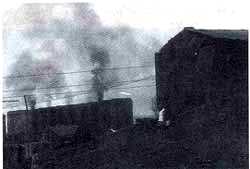MP lags in millennium development goals
Madhya Pradesh is far away from achieving the United Nation's Millennium Development Goals (MDGs) by 2015, if one takes into account a mid-term evaluation report prepared by a voluntary group, Triple 7 Report. The report --- christened as 'Mid-term status of Millennium Development Goals in Madhya Pradesh - A Peoples' report' makes a telling commentary as to what extent the state lags behind on eight development goals as set by the United Nations over seven years back. The UN on September 8, 2000 made a declaration for the millennium which stated that by 2015, eight goals of development vis-a-vas removing extreme poverty and hunger, achieving universal primary education, empower of women and increasing gender equality, reducing infant mortality, improving health of mothers, fighting against diseases and protection of environment and its development would be achieved. A mid-term evaluation report on these goals in Madhya Pradesh, said that 44.77 lakh families in the state lived below poverty line, while 15.81 lakh families came in the circle of extreme poverty (quoting M P Economic Survey report 2006-07. The report quoting the National Sample Survey organization report, said that poverty in Madhya Pradesh declined from 37.43% to 21.4 per cent, which is far more than decline in poverty at national level from 26.1% to 21.8%. As per the latest report of the union government till July 2007, works towards strengthening livelihood of 1.15 lakh families in Bihar, 2.93 lakh families in Rajasthan, 95000 families in Andhra Pradesh had been undertaken but not families in Madhya Pradesh was getting this benefit. As per the National Rural Employment Guarantee Act, which provides guarantee for employment of 100 days per year to labourers, the state government as against issuing job cards to 43 lakh families, provided employment to merely 25.48 lakh families. The UN under its second millennium development goals had envisaged to increase enrollment of children in primary schools to 100 per cent by 2015. However, going by the present status of enrollment in Madhya Pradesh, it seemed unlikely that the state will achieve its goal by the given time period. A survey undertaken in 10 districts of the state under M P Shiksha Abhiyan in 2006-07, revealed that that the net enrollment ration of children in primary schools was at 84.5%. The report also said that 32% primary schools in the state had one primary teacher, while in 33.75% primary schools, there was no female teacher at all. The MDGs envisaged to reverse the trend of child mortality under five year by -3rd by 2015 but on this front also, the situation in Madhya Pradesh is far from satisfactory. The infant mortality in state stood at 76/1000 live births. Similarly, 2.4% of the children aged 12-24 years were not immunized against all prevalent diseases. The report also revealed a substantial drop on state government's expenditure on health which declined from 5.1% of the total budget in 2000-01 to 3.4% in 2004-05. The target to bring the infant mortality rate down to 53.14% hardly seems to be achievable. The report quoting National Family Health Survey III, said that the status of malnuitrion in Madhya Pradesh increased by 6.3%, going up to 60.3% the highest in the country. Similarly, the maternal mortality rate in the state stood at 379/1000, one of the highest in the country. As per the millennium development goals, the MMR and IMR in the state are essentially to be reduced to 220/1000 and 62/1000 respectively by 2011. By Krishna K Jha









